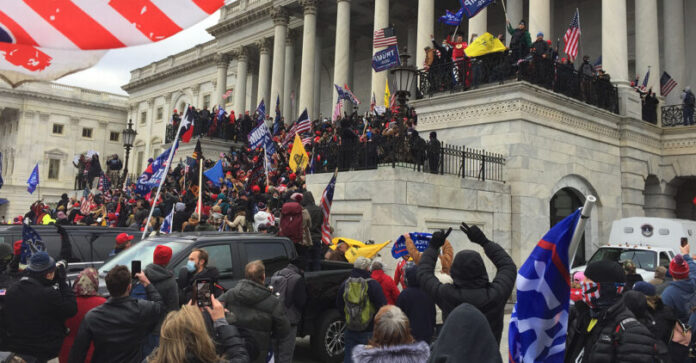
By Stacy M. Brown, NNPA Newswire Senior National Correspondent
Former President Donald Trump faces yet another legal battle as oral arguments commence in Minnesota on Thursday, Nov. 2, where the state’s Supreme Court will weigh a case challenging his appearance on the state’s ballot under Section 3 of the 14th Amendment. The plaintiffs in the case cite Trump’s actions surrounding the Jan. 6, 2021, attack on the U.S. Capitol.
The Minnesota case marks the second courtroom showdown this week questioning Trump’s eligibility for public office. Earlier, arguments began in Colorado, where several election integrity groups are trying to have the twice-impeached and four-times indicted former president removed from the ballot.
Trump, who is currently immersed in a civil business fraud trial in New York where a judge has already determined he committed financial crimes, faces 91 felony charges that could land him a more than 800-year prison sentence for his actions after his loss to President Joe Biden in the 2020 presidential election. This year, a civil jury also found Trump responsible for sexually assaulting a writer.
In Minnesota, the justices could dismiss the lawsuit, potentially prompting an appeal from the petitioners. Alternatively, they could advance the case, potentially appointing a special master to oversee proceedings, present evidence, and call witnesses to testify. The special master would then furnish the findings and facts of the case to the justices, who would ultimately determine Trump’s eligibility for Minnesota’s ballot.
Voters contend that Trump’s actions on Jan. 6 render him unfit for office under Section 3 of the 14th Amendment, which stipulates that an individual is ineligible for future office if, while in office, they engaged in insurrection or rebellion against the Constitution or provided aid and comfort to its enemies, unless granted amnesty by a two-thirds vote of Congress.
The nonprofit organization Free Speech for People represents the state voters seeking to bar Trump from the ballot. Their clients include a former state secretary and a former Minnesota Supreme Court justice. The petitioners in the case are suing Minnesota’s Democratic Secretary of State, Steve Simon, urging the Supreme Court to prohibit Trump’s appearance on the state’s ballot. Free Speech for People had previously challenged the candidacies of several members of Congress in 2022, invoking Section 3. Notably, in a case against Georgia Republican Rep. Marjorie Taylor Greene, the plaintiffs could not provide sufficient evidence.


